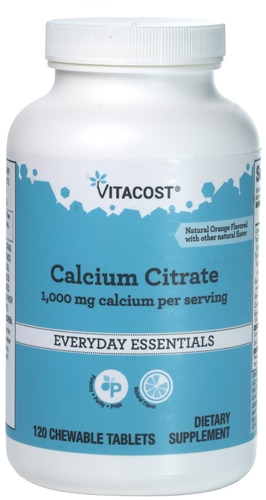On the surface, nutritional supplements may seem like a harmless, surefire way to fill in the gaps in your otherwise-wholesome diet and boost your health. Plus, given that they’re drawn from nature and mostly devoid of synthetic ingredients, it’s widely believed that supplements have zero consequences.
But, taken in excess, consumed improperly or ingested with conflicting medications, and nutritional supplements may actually cause a number of uncomfortable, even dangerous side effects.
What’s more, since many consumers are under the assumption that supplements can’t lead to repercussions, these side effects can arrive not only unbidden but also completely without warning.
Whether you’re conducting research before making an investment in a new batch of supplements, or are feeling generally “off” while taking one, here’s the lowdown on several of the most commonly-consumed supplements, their possible side effects—and how to thwart potential discomfort:
Calcium carbonate and constipation
What’s good for your bones must also be good for your gut—or so one might think.
But calcium carbonate—an essential mineral that supports bone health, teeth, muscle function, heart rhythm and more—can cause constipation and other intestinal distress such as gas and bloating.
Why?
One possible culprit is that you may be receiving adequate calcium in your diet alone, and augmenting it with a calcium supplement may lead to elevated calcium levels. “Constipation is a well-known side effect of elevated calcium levels, and even mild elevations may be enough to alter one's bowel habits,” Zocdoc confirms.
Your solution? Discussing the need for a calcium supplement with your doctor and determining if your calcium levels warrant a supplement.
If so, you can ease your tummy troubles by switching from calcium carbonate to calcium citrate, because, as the Mayo Clinic points out, “calcium carbonate is the most constipating.” Further, be sure to follow a diet that’s rich in fiber—and drink plenty of water.
Magnesium citrate and diarrhea
Speaking of stomach woes: Magnesium, a fundamental mineral involved in hundreds of different body processes (including energy, protein synthesis and the regulation of blood pressure), may be magnificent—but it might also cause diarrhea in excess.†
To avoid spending hours behind the closed door of your bathroom, strategize smartly. First, shy away from taking your daily dose in a single sitting—even if you want to be over and done with it immediately. Rather, take small quantities of magnesium throughout the day.
Additionally, much like calcium (and all of the nutrients mentioned here), take only as much magnesium as you need; excessive amounts can engender or worsen these intestinal complications.
Better yet, fill your plate with magnesium-abundant eats, such as spinach, Swiss chard, bananas and almonds. Focusing on fueling your magnesium levels through food may put you in a place where you won’t need a supplement—just be sure to check with your doctor first (and along the way).
Vitamin D and kidney stones
Frequently referred to as the sunshine vitamin, vitamin D supports a number of crucial functions, including bone health, immunity, brain performance and mood. It can also be a huge boon for the skin, leading to enhanced smoothness and radiance.†
That said, vitamin D can also create more ows than wows: In 2012, findings published by The Endocrine Society’s 94th Annual Meeting revealed that “long-term supplementation with calcium and vitamin D may be linked to the increased risk of kidney stones”—robust, crystalline mineral materials that can be exceptionally painful to expel.
The remedy? Discussing with your doctor (a recurring, and necessary, theme here) and taking the proper tests and precautions to ensure that you don’t have excess vitamin D levels. “…it is possible that long-term use of supplements causes hypercalciuria and hypercalcemia, and this can contribute to kidney stones,” Medical News Today reports. “For these reasons, it is important to monitor blood and urine calcium levels in people who take these supplements on a long-term basis."
Vitamin E—and omega-3s—and blood thinning
Vitamin E and omega-3s are both veritable powerhouses. The first, a fat-soluble vitamin, operates as a potent antioxidant and offers support to hair, eyes, cholesterol levels, hormone balance and more. Omega-3s, meanwhile, support heart and brain health, and may play a role in helping with the maintenance of a healthy inflammatory response in the body (among other imperative impacts).†
But one of the most serious side effects of both is the thinning of blood. Fish oil—a common form of omega-3s—thins the blood in “similar ways to blood thinners,” medical writer Jack Challem claims in his book, The Inflammation Syndrome. “This effect happens through the prevention of the platelets found in blood from sticking together and forming clots.” It has been said that these “blood-thinning effects may be magnified if you are taking natural blood-thinners, such as vitamin E.”†
To illustrate this further, “both fish oil and vitamin E thin your blood, so taking them in combination might put you at risk of excessive bleeding, especially if you take them in large amounts,” SF Gate reports. “Fish oil and vitamin E also share some drug interactions—both supplements interact with blood-thinning medicines and cholesterol-lowering medications, for example, so taking both supplements in combination with medication might increase your risk of side effects.”
Discuss with your doctor before taking either—he or she may determine that you don’t need a supplement, and, if you do, will help you ascertain the right dosage.
Vitamin B complex and anxiety
Vitamin B-complex—which is central to energy production, digestion and the formation of red blood cells, among other key functions—has been touted as a blessing for those with anxiety.†
Other data, however, suggests otherwise. A litany of consumers have reported higher levels of anxiety after taking certain B vitamins, including vitamins B6 and B12, while Mind Body Green adds to this by suggesting that these B-complex supplements can have an adverse impact on some people—namely in the form of increased restlessness, irritation, worry, even outright panic.
The solution is similar to the other points outlined here: see your doctor, and search for ways to enhance your vitamin B complex levels through food. Eggs, cottage cheese, grass-fed beef, salmon and feta cheese all pack a terrific punch of this crucial vitamin.
Zinc and nausea
Zinc may be one of the mightiest minerals at our disposal—naturally supporting over 300 different enzymatic reactions in the body, including one’s defense against free radicals—but venture beyond the recommended dietary allowance (8 mg for women 19 years of age and older, and 11 mg for men 19 years of age and older) and you may start to feel queasy: According to the Linus Pauling Institute, excessive amounts of this trace mineral may cause gastrointestinal problems, primarily in the form of nausea, cramps, diarrhea and vomiting.†
†These statements have not been approved by the Food and Drug Administration. These products are not intended to diagnose, treat, cure or prevent disease.




